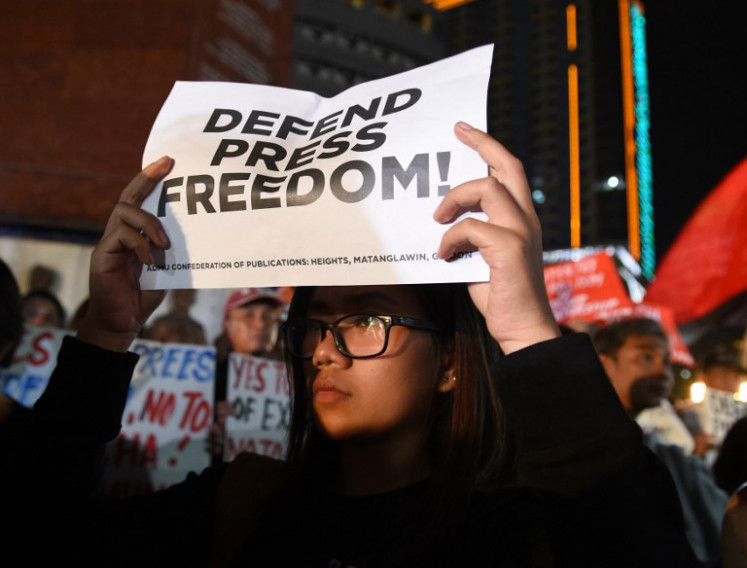Climate change law urgent: Scholars
Indonesia is in dire need of a special law on climate change authorizing the environment ministry to execute and monitor a national action plan to mitigate climate change, experts say
Change Size

Indonesia is in dire need of a special law on climate change authorizing the environment ministry to execute and monitor a national action plan to mitigate climate change, experts say.
Such a law should put an end to the country’s “business as usual” approach to dealing with global warming, University of Indonesia environmental law expert Andri Wibisana said.
“It should give clear goals in terms of greenhouse gas emissions reductions and compliance mechanisms,” Andri said.
He said the new law would allow Indonesia to shift its energy policy away from its current heavy reliance on fossil fuels to the use of renewable energy.
In a recent study presented at the Better Air Quality Conference in Bangkok last week, Andri and Laode Syarif of Hasanuddin University recommended a climate change law be enacted.
The study, sponsored by the United States Agency for International Development (USAID) and the Asian Environmental Compliance and Enforcement Network (AECEN), says the 1997 environment management law is ineffective for dealing with environmental issues because executive and regulatory powers are given to other departments and local authorities.
Japan is the only Asian country to have enacted a climate change law.
Indonesia ratified the United Nations Framework Convention on Climate Change (UNFCCC) in 1994 and the Kyoto Protocol in 2004.
Under the Kyoto, however, Indonesia, like other developing nations, has no obligation to reduce emissions.
“As a result, the convention has no specific target concerning mitigation efforts.
It also causes policies on climate change to rely heavily on a voluntary approach,” Andri said.
Andri warned the absence of a climate change law would lead to uncertainty as to whether or not Indonesia would be obliged to cut emissions after the commitment to the Kyoto arrangement expired in 2012.
The State Ministry for the Environment launched a national action plan for adaptation to and mitigation of climate change at the Bali conference in December last year. However, it is not clear who will execute the action plan, as each department has its own targets.
“The climate change regulations are now spread through various and fragmented sectoral regulations,” Andri said.
Mitigation in the energy sector falls under the responsibility of the Energy and Mineral Resources Ministry, while efforts to cut carbon emissions are the responsibility of the Forestry Ministry.
Following the Bali conference, President Susilo Bambang Yudhoyono issued a presidential decree to set up the National Council for Climate Change, chaired by environment minister Rachmat Witoelar.
Although the council brings together 16 ministers, it has no power to penalize departments that fail to meet their climate change mitigation targets.
“The decree is not enough to deal with climate change,” Andri said. “We need a law that clearly specifies an enforcement mechanism.”
Andri’s paper will be discussed again at the AECEN annual forum in Bali on Nov. 26.









